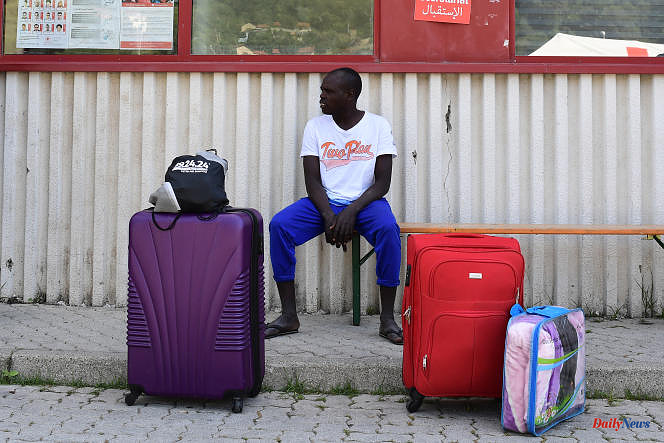“To live better, you have to live in hiding. A woman thus closes the story of her brutal deportation, with her sick child, on the Italian side of the border. We are in Ventimiglia, Italy, "bulwark" of Menton (Alpes-Maritimes), French side, "on the outskirts of the centers of power". Here, the border should no longer be marked, Schengen area – soon to be thirty – obliges.
However, people in a migration situation have come up against an invisible wall, as, since 2015, internal border controls have been reestablished. This wall that engulfs them, Charlotte Rouault has tried to materialize in an immersive documentary broadcast by Le Labo, the radio creation workshop of Swiss Radio-Television (RTS).
“How far can we cut off those whom European migration policies make us perceive as “foreign bodies” to our communities? “, she asks. People in a migration situation who arrive in Ventimiglia only receive help from mobilized citizens. Taking the first train to France rarely pays off. The wagons are searched, the passengers "facies checked" by the police when they arrive at Menton-Garavan station. "With a gesture", testifies a volunteer, without any explanation and in defiance of the law, those who would like to seek asylum - sometimes minors, injured or sick - are sent back to Italy.
issue of racism
There remains, therefore, at nightfall, the possibility of following the railway or the motorway. Some lose their lives there. The others also risk it when they try to cross the border through the Alps. When they are not at the mercy of smugglers, they risk falling or being beaten if they are caught by soldiers. "This is what returned part of the population" to Sospel, explains a resident of this commune in the Alpes-Maritimes.
After the Nice attack in July 2016, the soldiers were applauded and their checks were welcome. Since then, the discourse has changed: “Some have heard the cries of those they caught at night. A neighbor told me he was so scared once he barricaded himself in his home. Ventimiglia station is "militarized but not secure", described another volunteer.
Charlotte Rouault's geographical narrative, constructed like a sequence shot, breaks the silence and darkness that bury these lives. And raises the political question of racism: "What happens on this border would never be tolerated if it were white bodies," explains the documentary filmmaker. "People ignore them," said a man in Foreign Bodies who still hasn't gotten his papers after living in Italy for four years. We are all the same, I don't know why some ignore them. »












